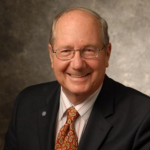The U.S. State Department this week issued its latest report on the proposed Keystone XL pipeline, stating its construction would not cause a significant increase in the emission of greenhouse gases. The proposed pipeline, which would run from the tar sands of Alberta, Canada to the Gulf of Mexico, must be approved by President Barack Obama.
The following statements from energy policy experts at The Heartland Institute – a free-market think tank – may be used for attribution. For more comments, refer to the contact information below. To book a Heartland guest on your program, please contact Director of Communications Jim Lakely at [email protected] and 312/377-4000 or (cell) 312/731-9364.
“For the thousands of Americans struggling to find work, a new study by the State Department may be the glimmer of hope they need. The study predicts that construction of the Keystone XL pipeline would generate 42,000 jobs throughout the economy, all while having a negligible impact on climate change and the environment.
“It’s a simple reality: The Alberta oil sands are the third largest proven reserves of oil in the world and these reserves will be developed regardless of whether the Keystone XL pipeline is built. The question is: Do we want to create 42,000 jobs right here at home, or do we essentially out-source these jobs to China? We’ve sent enough jobs to China. It’s time to keep thousands of environmentally friendly jobs here, on American soil.”
Isaac Orr
Research Fellow, Energy and Environment Policy
The Heartland Institute
[email protected]
312/377-4000
“The simple fact is that American refineries have always and will continue to run as close to full capacity as possible. The only issue here is how they get their feedstock and where it comes from. Every barrel extracted in Alberta and delivered through an efficient modern pipeline like Keystone XL is a barrel that doesn’t have to be purchased from OPEC and that doesn’t have to be shipped by tanker, rail or barge. Keystone XL not only makes sense economically, like most economically sensible solutions, it makes sense environmentally.
“Is Canadian crude dirtier than sweet crude? Sure, but American refineries have been gearing up to handle it without any increase in pollution. And, with an aggressive Environmental Protection Agency keeping refiners under their microscope, there’s no way they can do anything else.”
Richard J. Trzupek
Policy Advisor, Environment
The Heartland Institute
[email protected]
312/377-4000
“The recent State Department report and previous analyses demonstrate approving the Keystone XL pipeline project would have five beneficial effects. First, by increasing petroleum supplies, it will work to lower energy prices. Second, it will likely reduce somewhat energy export revenues of nations hostile to the United States and thus modestly reduce terrorist funding. Third, it will create both temporary and permanent jobs in the U.S. Fourth, it will measurably reduce the possibilities of environmentally hazardous rail mishaps involving oil shipments. Fifth, by shifting the mode of oil transport, it will marginally reduce the amount of emission of greenhouse gases. “The benefits are high relative to the costs. To oppose constructing this pipeline is madness, and not justifiable for any reason other than to appease extremist political supporters of the president.”
Richard Vedder
Professor of Economics
Ohio University
Policy Advisor, Economics
The Heartland Institute
[email protected]
“Though opponents of the Keystone XL pipeline claim their concern is with a possible spill that could contaminate ground water, their ultimate goal is to stymie production in the Canadian oil sands as well as the Bakken. But their logic is flawed. Decades of use have proved that pipelines overall are overwhelmingly safe and reliable. And when a spill occurs, repair and cleanup are relatively easy. By comparison, when a freight train hauling crude oil in tank cars jumps the rails, the damage can be devastating – as was the case with the tragic accident in Quebec in July 2013.
“President Obama also seems to have forgotten that we have a ‘common market’ in energy with our northern neighbor, meaning no policies are supposed to be implemented that affect the flow of energy resources between the two countries. The brouhaha over Keystone XL has been a diplomatic slap in the face to Canada, America’s number one trading partner. If the president decides to veto the pipeline, further damage will be done to U.S.-Canadian relations. In a worst case scenario, Canada could even place restrictions on future American investment in their energy sector.”
Bernard L. “Bud” Weinstein
Associate Director, Maguire Energy Institute
Adjunct Professor of Business Economics
Cox School of Business, Southern Methodist University
[email protected]
“Whatever the final decision might be, the delay is yet another thumb in the eye of a reliable, democratic ally. Canadians must be wondering why they permitted their troops to participate in an American war in Afghanistan, one that cost 158 Canadian soldiers’ lives. Should an ally in the future repose much faith in America, might it not be thought foolish?
“Meanwhile, Canadians are quietly moving ahead with their own trans-Canada pipeline that will carry Alberta oil to more reliable purchasers. Other countries will take note, and the costs of all this will be born by Americans for many generations.”
F.H. Buckley
Foundation Professor of Law
George Mason University School of Law
[email protected]
“The five-year delay of the Keystone XL pipeline by Barack Obama tells you everything you need to know about his indifference to the growth of the U.S. economy. It also says much about the fact that the pipeline would be just one among the thousands of miles of pipelines that provide the U.S. with the oil it needs to fuel its transportation fleet and the thousands of uses to which its oil would be applied in the manufacture of all manner of products.
“His refusal has become an issue for the unions that formerly supported him and will contribute to the growing awareness among others, too, who voted for him twice.”
Alan Caruba
Founder, The National Anxiety Center
Policy Advisor, The Heartland Institute
[email protected]
312/377-4000
The Heartland Institute is a 30-year-old national nonprofit organization headquartered in Chicago, Illinois. Its mission is to discover, develop, and promote free-market solutions to social and economic problems. For more information, visit our Web site or call 312/377-4000.









